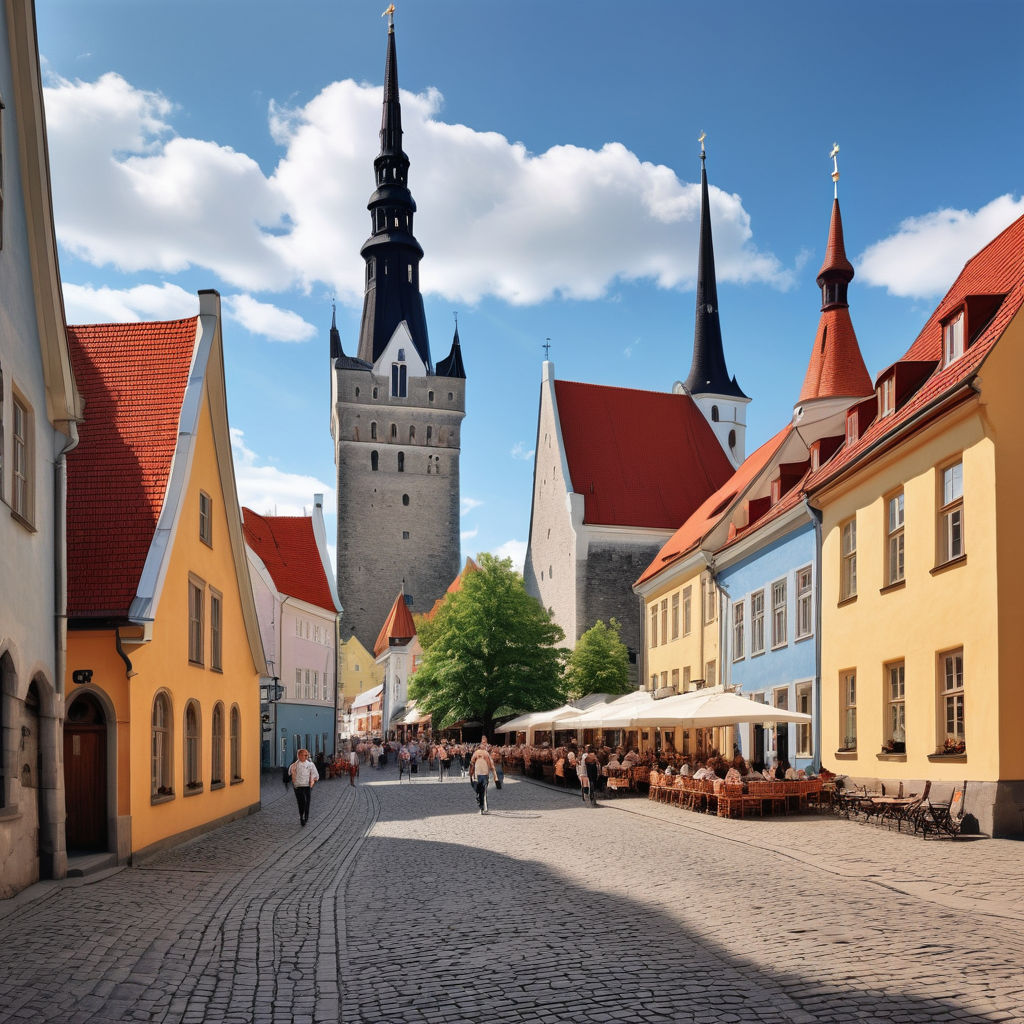Introduction to Estonia: Culture, History, and Modern Influence
Explore Estonia's Rich Cultural Heritage and Modern Innovations

Introduction to Estonia
Estonia, officially known as the Republic of Estonia, is a country located in Northern Europe, bordered by the Baltic Sea to the west, Latvia to the south, Russia to the east, and the Gulf of Finland to the north. It boasts a rich cultural heritage and a unique blend of historical and modern influences. The capital city, Tallinn, is renowned for its well-preserved medieval architecture, vibrant cultural scene, and technological advancements. Other significant cities include Tartu, known for its prestigious university and intellectual atmosphere, and Narva, with its strong Russian cultural influence. Estonia's cultural heritage is a fascinating amalgamation of indigenous traditions and influences from neighboring countries. This blend is evident in its folk music, dance, and festivals, such as the Song and Dance Festival, which celebrates Estonian national identity through traditional performances. Estonia's cuisine reflects its agricultural roots, featuring dishes like rye bread, smoked fish, and the famous kama, a mix of roasted barley, rye, oat, and pea flour.
Cross-national and Cross-cultural Understanding
Estonians generally perceive and engage with other cultures with openness and curiosity, fostered by their country's history of foreign rule and its strategic position as a bridge between East and West. The people of Estonia value cross-cultural understanding and actively participate in cultural exchanges, educational programs, and international partnerships that promote mutual respect and learning. Cultural exchanges are a cornerstone of fostering cross-cultural understanding in Estonia. The country hosts various festivals and events that celebrate both local and international traditions. For instance, the PÖFF (Tallinn Black Nights Film Festival) attracts filmmakers and audiences from around the world, promoting cultural exchange through cinema. Estonia's membership in the European Union (EU) and its active participation in initiatives like the Erasmus+ program facilitate cultural and educational exchanges. Educational programs in Estonia emphasize global awareness and cross-cultural understanding. Schools and universities incorporate multicultural perspectives into their curricula, encouraging students to appreciate and respect diversity. The University of Tartu and Tallinn University of Technology collaborate with international institutions to facilitate student and faculty exchanges, enriching the educational experience and fostering global connections.
Interactions and Social Dynamics
Typical interactions between Estonians and foreigners are characterized by politeness, respect, and a reserved yet friendly demeanor. Social behaviors in Estonia reflect a blend of traditional customs and contemporary influences, emphasizing respect for others, honesty, and a strong work ethic. Communication styles in Estonia are generally straightforward and direct, with a high value placed on clarity and honesty. Estonian is the official language, but English is widely spoken, especially among the younger population and in urban areas. Russian is also commonly spoken due to the country's historical ties with Russia. This multilingualism facilitates interactions with tourists and expatriates, making it easier for them to integrate into the local community. Cultural norms in Estonia place a strong emphasis on privacy, punctuality, and self-reliance. These norms create an environment where individuals are respected for their independence and personal space, yet community involvement and social cohesion are also highly valued. Public displays of affection are generally modest, reflecting the country’s traditional values, but social gatherings and communal activities are lively and inclusive.
Views on Dating and Relationships
Attitudes towards dating and relationships with foreigners in Estonia are generally open and accepting, though influenced by cultural and traditional norms. Estonians recognize the opportunities for cultural exchange and personal growth that such relationships can bring. However, traditional customs and values play a significant role in shaping these views. Family involvement is significant in relationships in Estonia, with elders often playing a crucial role in the approval process. Traditional customs emphasize respect, patience, and the gradual building of trust in relationships. While modern dating practices influenced by global trends are becoming more common among younger generations, traditional values still hold sway in many communities.
Marriage and Family
Marrying a foreigner in Estonia involves navigating both legal and social considerations. Legally, the country has clear regulations governing marriage, including residency requirements and the need for proper documentation. Socially, cross-cultural marriages are generally accepted, though couples may face challenges related to cultural differences and integration. Familial acceptance is a key factor in cross-cultural marriages. Estonian families can be protective, and gaining their approval is often essential for the relationship's success. However, the diverse cultural landscape of Estonia means that many families are already familiar with and accepting of different cultural backgrounds, which can facilitate smoother integration for foreign spouses. Trends in cross-cultural marriages reflect Estonia’s open and inclusive society. Many Estonians who travel abroad for education or work form relationships with individuals from various cultures, bringing back diverse customs and traditions that enrich the local community.